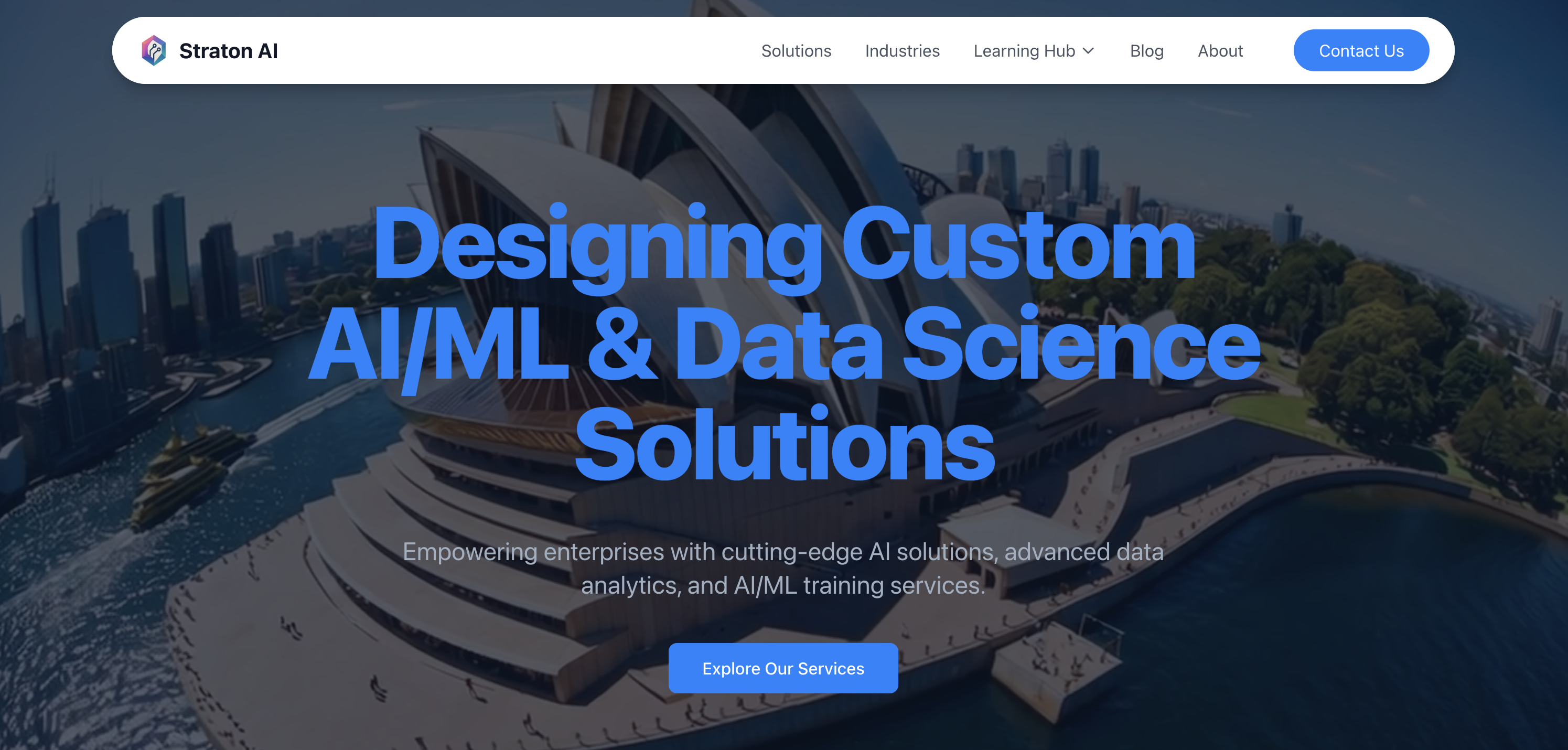The Future of AI in Enterprise: Trends and Insights
In today's rapidly evolving digital landscape, Artificial Intelligence (AI) has emerged as a game-changer for enterprises worldwide. From streamlining operations and enhancing decision-making to driving personalized customer experiences, AI stands at the forefront of innovation. In this blog post, we will explore the latest trends shaping the future of AI in enterprise applications and provide actionable insights for businesses looking to stay ahead of the curve.
Introduction
Businesses of all sizes are increasingly integrating AI into their core processes. According to recent industry reports, AI-driven solutions are projected to contribute trillions of dollars to the global economy over the next decade. The enterprise sector, in particular, is leveraging AI for everything from predictive analytics to customer relationship management (CRM) and supply chain optimization. However, as organizations embrace AI, it's crucial to stay informed about emerging trends and best practices to maximize success and maintain a competitive advantage.
In this blog, we will break down the key insights that every enterprise leader, technology enthusiast, and AI professional should consider when planning and implementing AI strategies.
Key Insights
1. AI Trends: From Automation to Autonomy
One of the most notable shifts in enterprise AI is the movement from basic automation to more advanced autonomous systems. While automation focuses on reducing manual tasks through robotic process automation (RPA) and rule-based algorithms, autonomous AI takes it a step further by:
- Self-learning capabilities: Machine learning models that continuously improve their accuracy and decision-making.
- Adaptive decision-making: AI systems that not only follow predefined rules but also adapt strategies based on real-time data.
- Proactive optimization: Intelligent tools that predict future scenarios and optimize processes without human intervention.
Key takeaway: Organizations that invest in AI autonomy stand to gain significant improvements in efficiency, speed, and innovation. By moving beyond mere task automation, enterprises can deploy solutions that evolve and grow, paving the way for more scalable and resilient business models.
2. Ethical and Responsible AI Practices
As AI's influence grows, ethical considerations and responsible use are becoming central to enterprise strategies. With new data protection regulations (e.g., GDPR, CCPA) and increasing consumer awareness, businesses must:
- Ensure data privacy and security: Implement robust data governance frameworks to protect sensitive information.
- Combat bias in algorithms: Regularly audit AI models to address potential discrimination or inaccuracies.
- Maintain transparency and explainability: Provide clear explanations of AI-driven decisions to build trust with stakeholders.
Key takeaway: Adopting an ethical AI framework not only mitigates regulatory and reputational risks but also reinforces customer trust. Enterprises that prioritize responsible AI practices are more likely to succeed in the long term.
3. Major Considerations for Successful AI Implementation
Implementing AI is not just about technology—it's about strategy, culture, and continuous improvement. Before diving into AI adoption, enterprise leaders should consider:
Data Readiness
- Assess the quality, quantity, and relevance of data
- Invest in data cleaning, integration, and management solutions
- Establish clear data ownership and governance policies
Talent and Skill Gaps
- Recruit data scientists, machine learning engineers, and domain experts
- Upskill existing employees to work effectively with AI-driven tools
- Encourage cross-functional collaboration between tech, business, and compliance teams
Infrastructure Requirements
- Evaluate current IT systems and identify potential bottlenecks
- Upgrade hardware, cloud services, and networking solutions as needed
- Consider scalable solutions like cloud-based AI platforms for flexibility and cost efficiency
Change Management
- Communicate AI strategies and benefits clearly to all stakeholders
- Provide training, support, and resources for teams to adopt new AI tools
- Foster an innovation-oriented culture that embraces experimentation and iterative learning
Key takeaway: A strategic, well-planned approach—encompassing data readiness, talent development, robust infrastructure, and change management—is essential for successful AI integration. Failure in any one of these areas can slow down or derail adoption efforts.
4. Strategic Elements for Long-Term AI Success
To remain competitive, enterprises must adopt forward-thinking strategies that go beyond short-term fixes. Here are some long-term strategic elements to consider:
Hybrid AI Architectures
- Combine on-premises solutions for data-sensitive tasks with cloud-based services for flexibility and scalability
- Ensure seamless integration across multiple environments to enable real-time data flow and advanced analytics
Industry-Specific Customization
- Tailor AI models to address unique industry challenges
- Collaborate with domain experts to refine algorithms and improve accuracy
Continuous Model Monitoring and Governance
- Implement ongoing performance tracking for AI models
- Set up a governance board to periodically review AI policies
Innovation Ecosystem and Partnerships
- Partner with startups, academic institutions, and technology providers
- Participate in industry consortia and research initiatives
Conclusion
The future of AI in enterprise is both promising and complex. By closely monitoring trends like autonomous systems, investing in ethical frameworks, and considering the key pillars of successful implementation, organizations can unlock transformative benefits.
Ready to embrace the power of AI in your enterprise?
- Assess Your AI Readiness: Identify gaps in data, talent, and infrastructure
- Invest in Ethical AI: Build transparent, responsible AI models that foster trust
- Stay Future-Focused: Adopt scalable solutions and form strategic partnerships for sustained success
By taking these steps, your organization can harness the full potential of AI-driven innovation—not just for efficiency and cost savings, but for market leadership and enduring growth.





